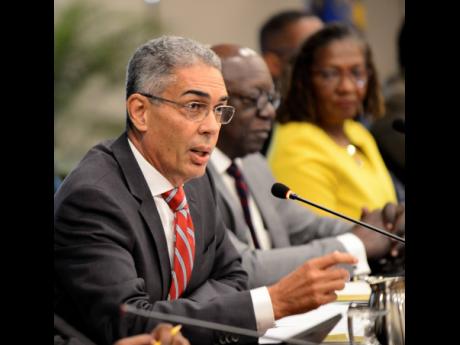Credit extended by deposit-taking institutions to private-sector businesses as well as households has accelerated in recent months, growing to 16.8 per cent over the 12 months to June 2019, compared with the 12.3 per cent a year earlier.
However, Bank of Jamaica Governor Richard Byles said that while the faster pace of credit “is a positive signal, we are of the view that this expansion in credit is still not fast enough, particularly in the context where domestic activity remains below the economy’s potential or capacity”.
He added that “this suggests that an even faster pace of credit growth is possible without causing inflation to rise above the inflation target”. It was Byles’ first briefing, which came just 10 days into his appointment as governor of the central bank on August 19.
On Tuesday, the central bank lowered the policy rate – the rate offered on overnight placements with the BOJ – by 25 basis points to 0.50 per cent per annum, effective August 28.
The decision to cut rates further reflected the bank’s assessment that in the absence of additional monetary policy action, inflation is expected to fall below the lower limit of the target of 4.0 to 6.0 per cent at various points over the next eight quarters, said Byles, in presenting his first quarterly monetary policy report at the BOJ’s office in Kingston on Thursday.
In addition, he said, notwithstanding the recent uptick in annual inflation, core or underlying inflation is projected to remain at relatively low levels. Following that, headline inflation is forecast to gradually approach the midpoint of the target, although at a slower pace than anticipated a few months ago.
Byles, who chaired one of Jamaica’s largest financial conglomerates, Sagicor Group, before taking on the central bank leadership, said that if Jamaica were to pursue an inflation target lower than the 4.0 to 6.0 per cent, it would require a reversal of the central bank’s current accommodative monetary policy posture to one that is more conservative and restrictive.




Leave A Comment